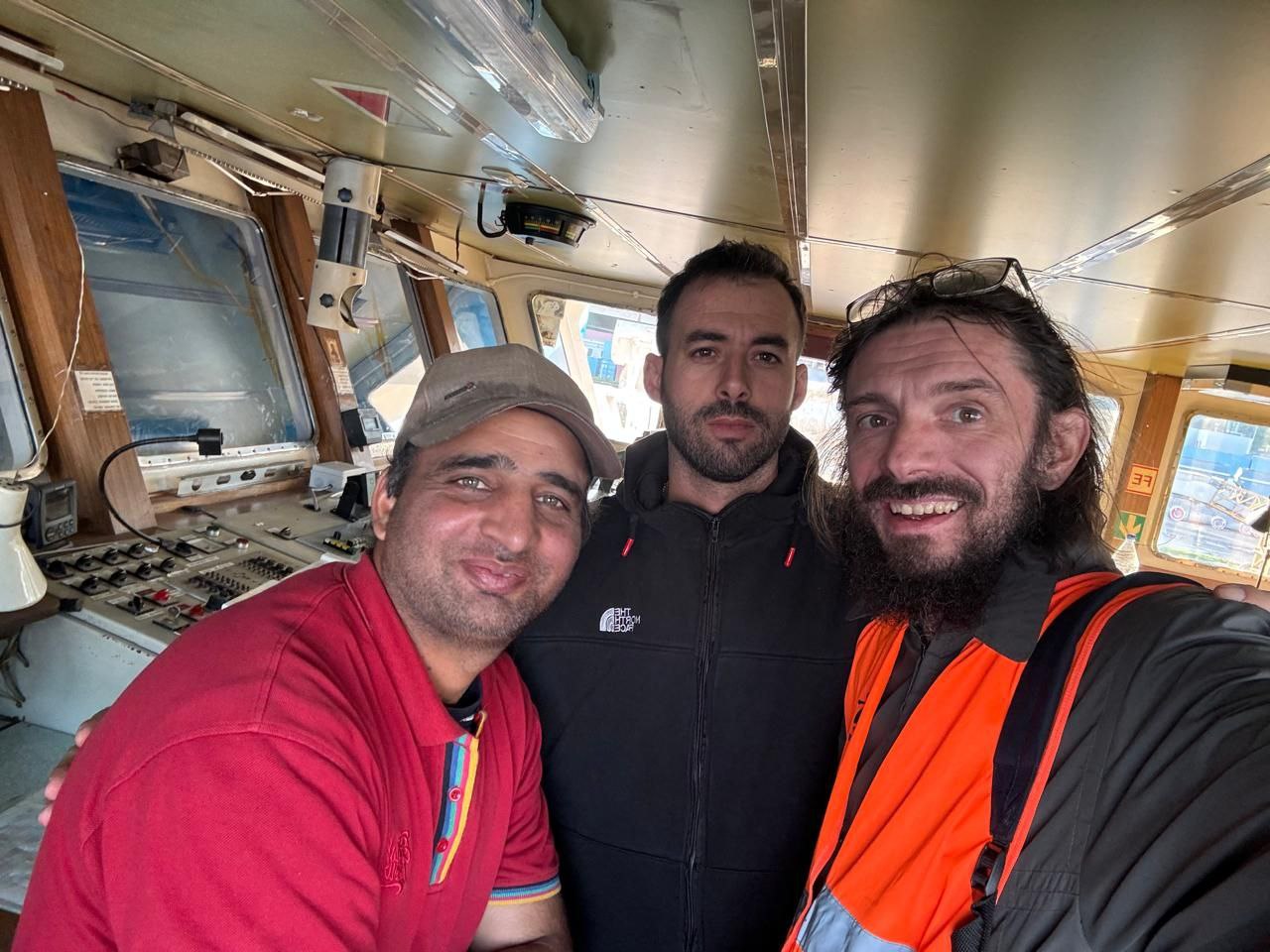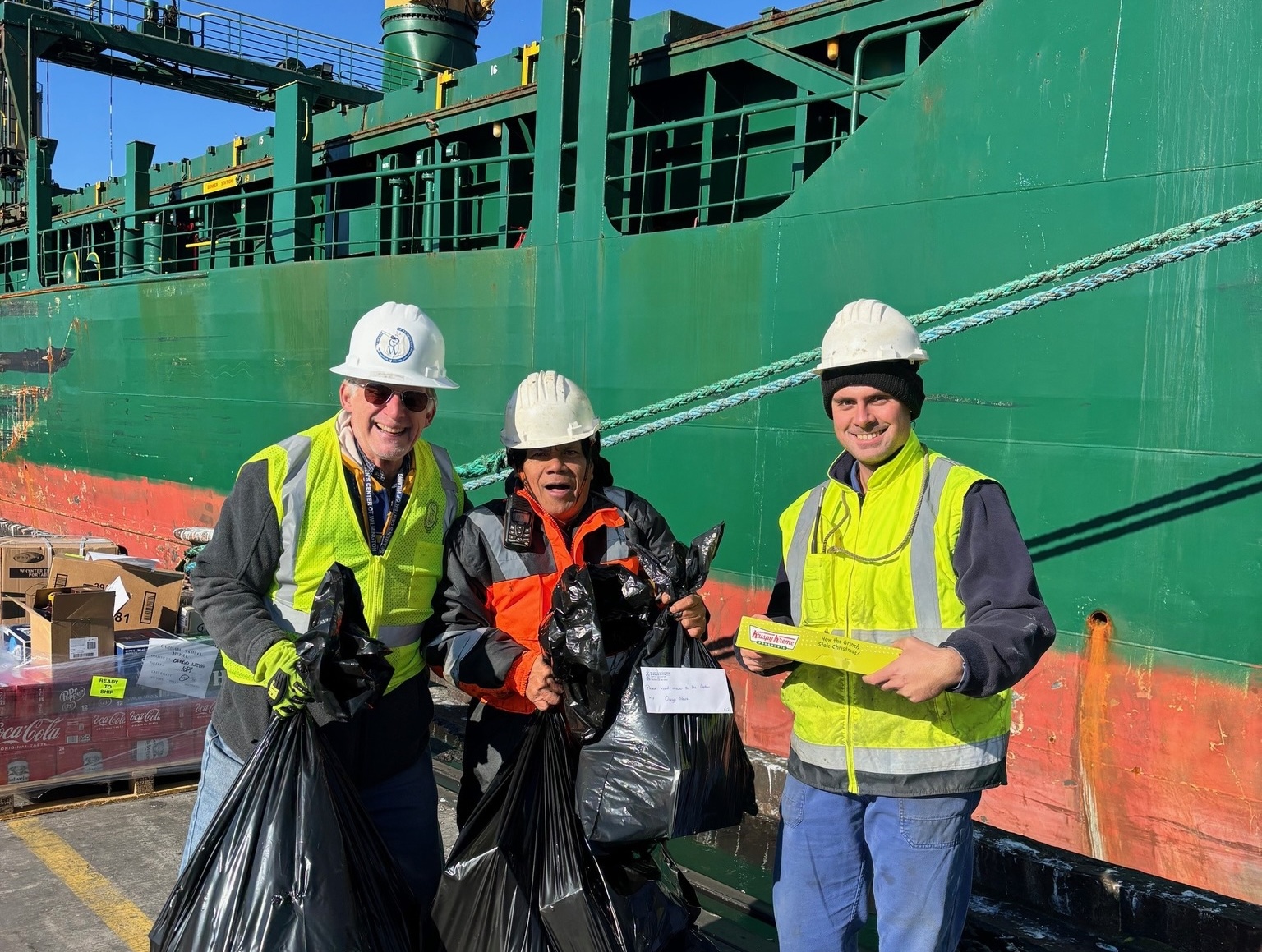by Susan Huppert, NAMMA
As Amazon trucks and postal services scramble to deliver holiday packages on time, chaplains and volunteers in the Canadian port of Vancouver board the free water taxi to deliver Christmas gifts to seafarers at anchorage in their port.
The annual trip is a prime measure of how much reaching seafarers at Christmas means to this Vancouver outreach. Missions in other port cities join efforts to provide each seafarer on a ship in their respective port a Christmas gift during the holiday. The Vancouver Mission to Seafarers takes it a step further.
The Port of Vancouver is the largest port in Canada and the fourth largest in North America by tons of cargo. It offers 30 deep-sea and domestic marine terminals. In addition to those at these terminals, during Christmas an estimated 12 to 21 ships wait at anchorage to discharge cargo according to the Rev. Peter Smyth, CEO of the Mission to Seafarers. Although access is more challenging, they are included.
Just prior to Christmas Day, the mission staff maps out the ships at anchorage and delivers a personally prepared Christmas gift to each seafarer.
“There about eight of us onboard the water taxi,” wrote Smyth, who serves as Senior Port Chaplain. “We radio the ship as we are approaching and they lower the gangway. We hand gifts over to the seafarer at the bottom of the gangway. Due to time, we do not board every vessel.
“We go on some ships and take photos and visit. Sometimes a chaplain will stay onboard to be picked up later. I recall going on one ship to deliver gifts. It was a mixed crew and they all sang to us in the messroom.”
Participation in the deliveries provides a powerful exchange and clear expression of meeting real needs of seafarers. The process of gift giving at anchorage takes about five hours. Meanwhile, other volunteers also deliver gifts to the ships docked in the port.
Last Christmas, 71 ships in Vancouver including Roberts Bank and Delta Port, received gift bags. That translates to approximately 1500 seafarers docked and at anchorage who were personally remembered while far from home.
“While not all seafarers are Christian, it shows all seafarers that we are here and we care. It says they matter,” wrote Symth. “It is a blessing to see them smile especially when they are at work and a long way from loved ones.”
The Christmas effort takes keen coordination and commitment. About forty volunteers engage in the process and contribute to its success. Beginning as early as the Fall appeal, financial donations and gifts begin to arrive at the mission. By mid-December those from churches and the marine community gather to fill the gift bags with a variety of personal and practical items.
Thanks to the local Anglican Diocese, additional gifts will be delivered. Still others support through online contributions.
Sharon Cooper and her husband attend St. John the Apostle Anglican Church in Port Moody. As long-term partners of the Christmas outreach, they deliver gift bag items prepared by the Anglican Church women’s group and other donations to the mission.
“My husband and I have been taking a carload of items to the Mission House for many years,” said Cooper. “We bring knitted toques, hot socks, books, puzzles, magazines and home baking. It was particularly important to help out during COVID when so many seafarers were stuck on their ships.
“We always enjoy our time at the mission especially when we can connect with the seafarers there.”
The bond with seafarers is unique. The need for meaningful personal contact is critical for them.
Another Christmas volunteer, 72-year-old Pauline Mabias has donated her time since 2016. Last year she sewed 200 ditty bags to be filled and given away.
“I hope to make more ditty bags now that I am retired,” she said.
Mabias became a certified Ship Welfare Visitor in 2016. She was nominated by Bishop John Stephens to the Order of the Diocese of New Westminster 2024 for the seafarer ministry.
“I consider them my family and I sympathize with their struggles at sea. I love communicating with them and listening to their stories, which is a wonderful, heartwarming experience with a diverse group of seafarers.
“These experiences are cathartic for me, said the Filipino/American volunteer. “Seeing them relax and smile after each visit brings great joy to my heart and I love doing it.”
Seafaring is a dangerous occupation and a lonely life. The toll of separation from home and family strains this quite invisible workforce. Quick turnaround is critical to the movement of goods globally. Consequently, ships depart and seafarers are often forgotten. However, for those who are back at sea following Christmas in Vancouver, the impact of someone personally caring for them goes with them and this makes a difference.





